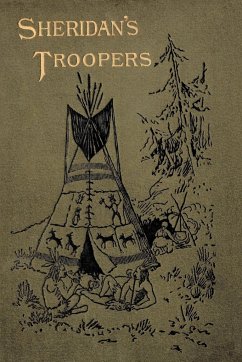Philip Henry Sheridan was known as a ruthless warrior who played a decisive role in the army's long campaign against the native peoples of the Plains, forcing them onto reservations with tactics of total war. In 1869, Sheridan succeeded William T. Sherman as commander of the Division of the Missouri, encompassing the Plains region from the Rocky Mountains to the Mississippi. With Sherman, he refined his tactics -- massive force directed in surprise attacks against Indian encampments -- to mount successful campaigns against the tribes of the Southern Plains in 1874-1875, and against those of the Northern Plains in 1876-1877. The struggle had come to solve for all time the question of whether the white or the red man would prevail in the vast intermediate region between Eastern and Western civilization. The two oceans were now linked together by the railroad and the native peoples were aware of the encroachment of the white men. They were ready at any moment for a desperate, final effort to drive out the invaders of their hunting grounds. As with the buffalo, the approach of civilization was to the native Americans the knell of destruction. As the murderous bullet of the white hunter ruthlessly slaughtered the buffalo, so the vices of civilization carried off those of the red men who had outlived their kindred. The campaign led by Sheridan was an exceptional one. Its object was to show the natives that the "white man's soldiers" could brave the storms of winter, and to surmount this natural barrier which had in the past protected the red man. Troopers on the Border is a narrative of more than six months spent on the Southern Plains of the United States, observing the operations ofthe army directed by then Major Sheridan against the native peoples of the Plains on the Republican, the Arkansas, and the Washita. In his narrative, Keim combines useful information with entertaining reading of the soldier's life on the Plains.








